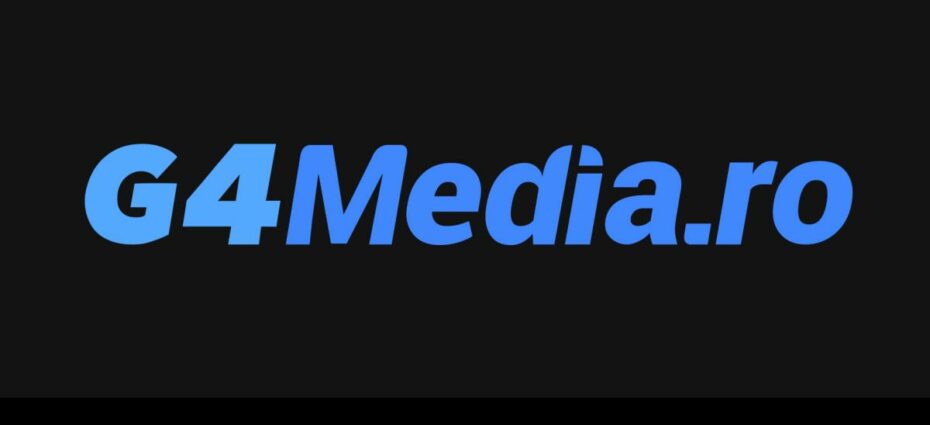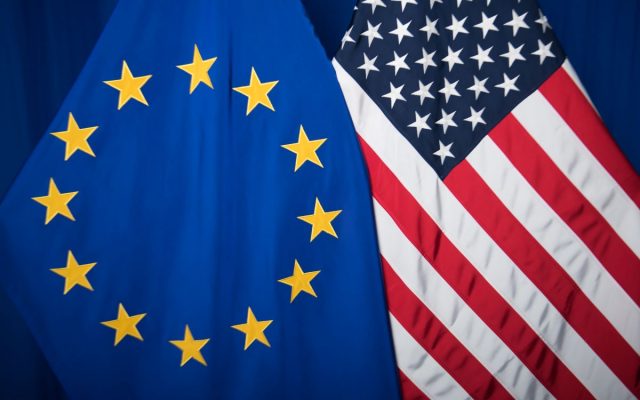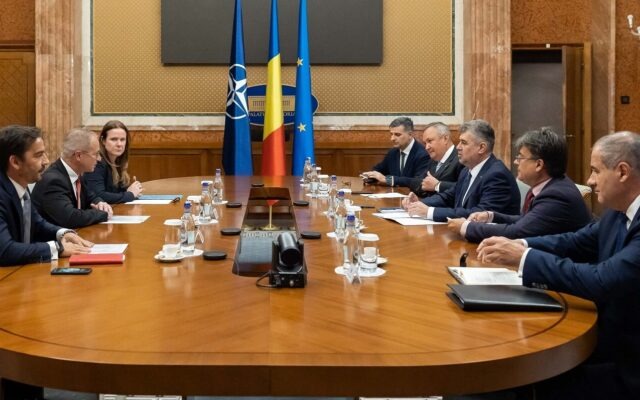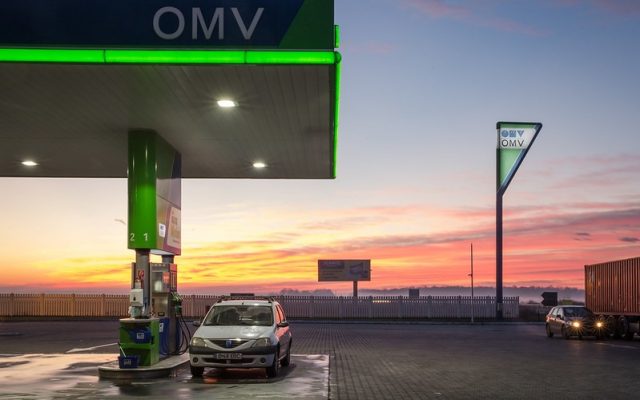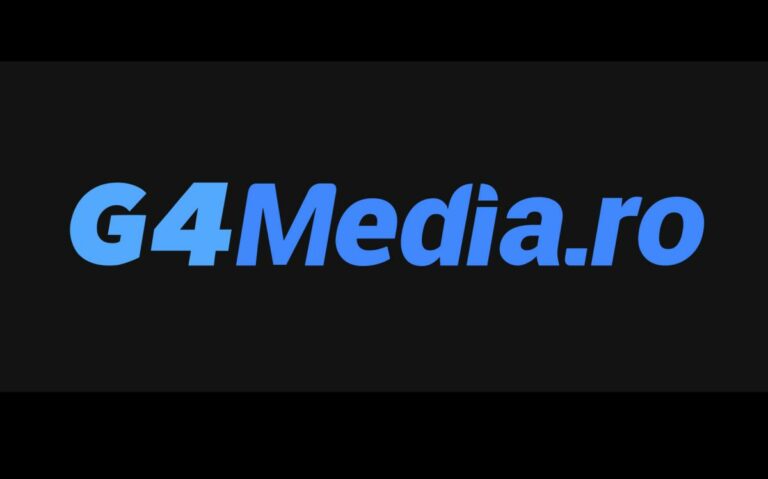
EXCLUSIVE How the PSD-PNL-UDMR coalition quietly modified the surcharge by which it wanted a billion euros from OMV Petrom: two meetings between Prime Minister Ciucă and the company’s representatives, plus a vague request for review from President Iohannis
The PSD-PNL-UDMR coalition last week quietly, without any public announcement, sweetened the legislative provision imposing a 60% surcharge on oil companies’ extraordinary revenues. The surcharge had also been imposed without public debate in December 2022 by the Ciucă government by emergency ordinance. How was the tax dilution achieved? The main company concerned, OMV Petrom, had at least two meetings with Prime Minister Nicolae Ciucă that were not publicly disclosed. The amendment in Parliament makes the surcharge on OMV Petrom around €300 million, compared to the original amount of over €1 billion that coalition leaders were demanding from the Austrian and Romanian-owned company.
Urmărește cele mai noi producții video G4Media
- articolul continuă mai jos -
How the surcharge evolved over time
– In December 2022, the government adopted an emergency decree (GEO) that required all oil and gas companies to pay a 60% surcharge on excess profits, i.e. profits that in 2022 and 2023 exceed the average taxable profits of 2018-2021 by more than 20%. Analysts and business representatives strongly criticized both the non-transparent method of adoption of the GEO, imposed practically overnight, and the arbitrary way of setting the amount of the surcharge, while the EU regulation on which the GEO is based leaves the amount to national governments.
– Immediately, OMV Petrom announced that the tax would not apply to it, because it does not meet the conditions set by the Romanian Government, having less than 75% of the turnover in the defined sectors. Initial calculations showed that OMV Petrom would have to pay a surcharge of around €1.5 billion.
– In Parliament, the coalition added an amendment that would have included OMV Petrom among the companies concerned. It was an amendment by MEP Alexandru Nazare, but market sources say it was also contested by OMV Petrom. The law was adopted by parliament on 29 March.
– However, the law was returned to parliament by President Klaus Iohannis, who wrote in his 13 April request for review that „some provisions are not clear enough”, without explaining which articles of the law he was referring to. It is unusual for President Iohannis to send Parliament a request for review in such vague terms. Usually, at the President’s requests indicate precisely which provisions the President is asking to be re-examined and amended.
– The PSD-PNL-UDMR coalition rushed substantial changes to the original OUG through the Senate and Chamber of Deputies. The amendments voted in the Senate and the Chamber of Deputies on 2 May and 3 May, seriously watered down the original provisions. Thus, the amendments strongly reduce the amount to be paid by OMV Petrom to around €300 million and exempt Black Sea Oil&Gas from paying this fee.
Why did the PSD-PNL-UDMR coalition change its mind?
None of the leaders of the ruling coalition has explained why the PSD, PNL and UDMR MPs agreed to rush through the new provisions, even though in previous months all the leaders had demanded that OMV Petrom pay the maximum surcharge.
G4Media asked the PSD and PNL leaders if they have had meetings with OMV Petrom representatives to discuss the change in how the surcharge is calculated.
The government press office reported that Prime Minister Nicolae Ciucă met with members of OMV Petrom on three occasions. The first meeting was on 16 March 2023 on the occasion of participation in the signing ceremony of the ceremonial declaration by Transgaz, OMV-Petrom and Romgaz on the conclusion of natural gas transmission contracts. That meeting was publicly announced at the time.
The other two meetings took place on 5 April and 11 April and were not publicly announced. „We would like to point out that these meetings concerned the investment plan for the Neptun Deep project (in the Black Sea – editor’s note),” the government’s press office said in its response to G4Media.
PSD leader Marcel Ciolacu also met with OMV Petrom representatives, according to a PSD response to G4Media. The response does not indicate the dates of these meetings, but according to G4Media sources, one of them was held jointly with Prime Minister Nicolae Ciucă. Instead, Ciolacu told G4Media that the amendment of the law took place strictly as a result of debates in the specialized committees in Parliament.
„I have met over the last year with OMV Petrom, E.ON, ENGIE, Enel, BSOG and all the other major foreign companies in the oil and gas industry because, following the outbreak of war in Ukraine, we had to overcome together a major energy crisis (…) As for the solidarity tax, its amendment became mandatory after President Iohannis sent the law back to Parliament for review. The technical solution to amend the law was the result of discussions and debates in the specialist committees where, as usual, the arguments of the industry were also heard”, Marcel Ciolacu’s reply to G4Media reads.
According to G4Media information, the drafting of the amendments that led to the drastic decrease of the surcharge took place after discussions between PSD and PNL leaders and OMV Petrom management. The oil company’s management also said that keeping the original formula for calculating the surcharge would jeopardise the start of gas production in the Black Sea, an investment already delayed for 12 years.
OMV Petrom reported a net profit of 10.3 billion lei in 2022. By comparison, in 2021 the company reported a net profit of 2.8 billion lei. In 2020, OMV Petrom reported a net profit of 1.29 billion lei, and in 2019 – a net profit of 3.63 billion lei. So, the net profit in 2022 is almost triple the company’s usual profits. Note that in 2022 Petrom has already paid a surcharge on natural gas revenues.
Full government response:
With reference to your request, registered at the Directorate for Communication and Press Relations under no. 86/3.05.2023, we inform you that Prime Minister Nicolae-Ionel Ciucă met on 16 March 2023 with members of OMV Petrom on the occasion of their participation in the signing ceremony of the ceremonial declaration by Transgaz, OMV-Petrom and Romgaz on the conclusion of natural gas transmission contracts. Link to the ceremony here: https://gov.ro/ro/stiri/participarea-premierului-nicolae-ionel-ciuca-la-ceremonia-de-semnare-a-declaratiei-ceremoniale-de-catre-transgaz-omv-petrom-i-romgaz-privind-incheierea-contractelor-de-transport-al-gazelor-naturale
We would also like to inform you that during the month of April, on 5 and 11 April respectively, the Prime Minister had two more meetings with OMV Petrom delegations.
We would like to point out that these meetings concerned the investment plan for the Neptun Deep project.
At the same time, we would like to mention that the Prime Minister and the government team are in constant dialogue with the business environment.
Full PSD response:
I have met over the last year with OMV Petrom, E.ON, ENGIE, Enel, BSOG and all the other major foreign oil and gas companies because, following the outbreak of war in Ukraine, we had to overcome a major energy crisis together. I believe that, together with Prime Minister Ciucă, we have succeeded in explaining to the major players in this strategic industry for the country’s economic development the purpose of the measures taken by the Government, and Romania has come out of an extremely tough test.
In addition to the scheme to cap energy and gas prices for the population and companies, the state has also set up a mechanism to compensate the costs of these large energy and gas suppliers for the rising prices of raw materials. Thus, both citizens and the economy were protected from the brutal shock of the energy crisis and Romania had solid economic growth in 2022. The suppliers also received the necessary financial support from the state – and we are talking billions of euros – with which they overcame the most difficult moments.
As for the solidarity tax, its amendment became mandatory after President Iohannis sent the law back to Parliament for review. The technical solution to amend the law was the result of discussions and debates in specialized committees, where, as usual, the industry’s arguments were also heard.
The solution arrived at is not a watering down, but an extremely clear resolution of the situation, which guarantees both the payment of a solidarity tax by companies that have made a totally exceptional profit in 2022, but which also provides the necessary space for strategic investments in the exploitation of gas from the Black Sea, a fundamental objective for Romania’s economic development.
BSOG is a company that has already been extracting gas from the Black Sea since the middle of last year. OMV Petrom is expected to announce its investment decision in the Black Sea, hopefully very soon. Romania’s stated goal is to ensure energy independence, and this goal is supported by both the United States and all our partners in the European Union.
This is why I am convinced that the discussions with the two companies will continue because we have a common goal: the gas from the Black Sea to support the country’s economic development. To this end, I am open to finding solutions to the problems that are inherent in such a turbulent international climate.

Donează lunar pentru susținerea proiectului G4Media
Donează suma dorită pentru susținerea proiectului G4Media
CONT LEI: RO89RZBR0000060019874867
Deschis la Raiffeisen Bank



